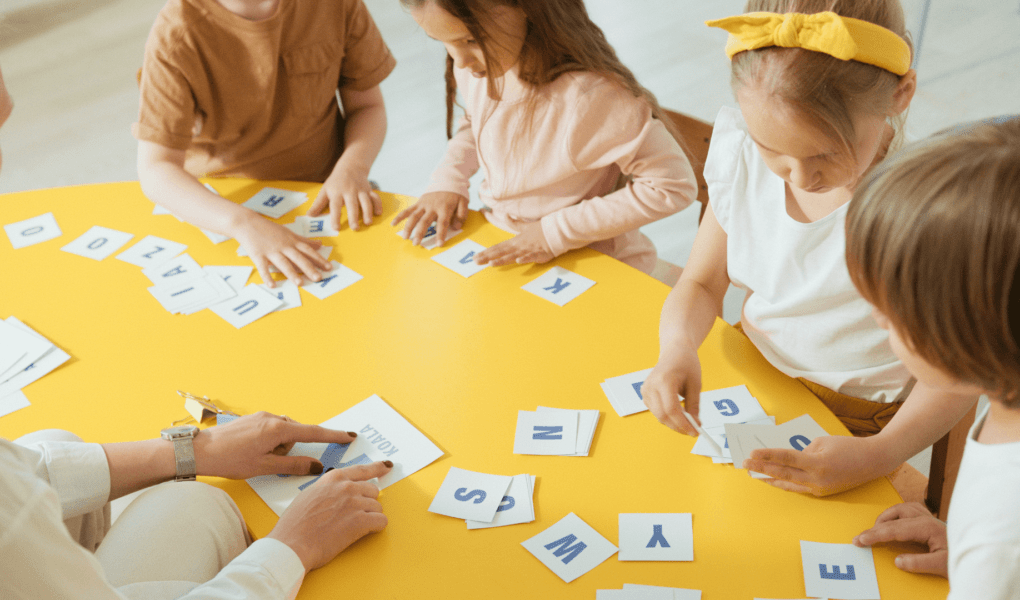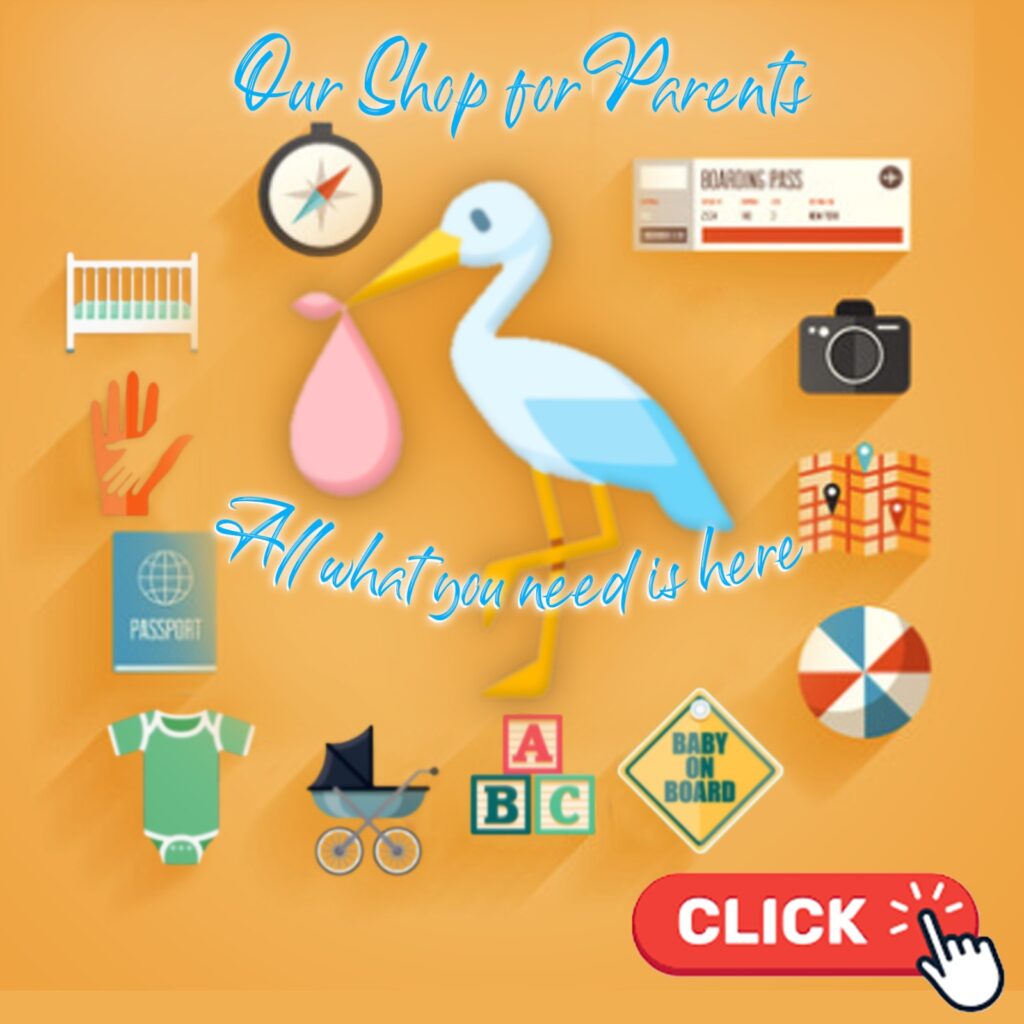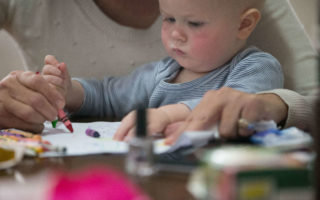How to raise bilingual children…Trilingual or multilingual?
After we moved to the UK, we found out that one of the biggest problems of most bilingual parents in the UK is that their children speak English and refuses to use their parents’ mother tongue.
Well, this makes sense if your child is being raised in English-based environment and have less or little engagement with you as a parent. Indeed, raising bilingual children is a challenge and constant hard work. But is there really nothing we can do for our children to treat many languages as their first? In this article, we will share on how to raise bilingual children.
Put yourself in the right mindset and let your child follow it
We have got rules and norms in every family, don’t we? The easiest but sometimes quite challenging task for parents is to let their children follow them. Let us explain.
If it is unacceptable for you to eat with your fingers, will your child be doing that?
Probably not. Because instinctively you will not allow it. Children at a young age, say from birth up to 3 years of age, perceive everything what you say in a form of instruction, e.g. “Peter goes to bed at 8 pm”, “Mary goes to toilet”, “We eat oats for breakfast”, etc.
Also, children are fantastic readers of your feelings and mood. They are designed to push the boundaries and are so curious to understand where it may lead them.
To understand more about how child’s brain works and why it is important to feed their brain as much as possible from birth, click the link below.
So, the bottom line is that the most bilingual parents struggle with some situations more than usual because they struggle to put themselves in the right mindset and therefore, they are not making it crystal clear to a child. One of the most popular issues is letting your child sleep throughout the night in their cot or bed.
It is similar when we speak about raising bilingual children. All that you should be perfectly clear about as a bilingual parent is that at home we speak this/these language(s), period. It is that “be all at sea” expression when you hear child said a word in other language.
Find the way that works without additional force or pressure
And this is a tricky part. You cannot force a child to speak certain language if they don’t want to, especially when they get slightly older and face “Terrible Threes” or Fours.
Note: Never force your child to speak your language as it may create resistance.
Instead, find the way that works for you to communicate in a preferable language. In other words, let them know why they should speak different languages, how they will benefit from being a multilingual family, what is the purpose of raising a multilingual child.

Here are just a few examples of raising bilingual children:
- As bilingual parents, explain how important it is to you and your identity. If you speak one language, it is more beneficial for you both to understand each other better, to be able to express yourselves better.
- Explain what the language is all about because it is not only a combination of words. It includes such important aspects as culture, history, customs, and practices that have been built by people for thousands of years. This is why there is a huge difference between acquired languages and native languages.
- Engage them in activities inside and outside the house.
- Find language buddies.
- Read stories and books (never worked better!)
Note: You have got all the time before they reach ten years of age. It is a different story after, but if you speak with your child two, three, or four languages on a daily basis until they are ten – eleven, rest assured, they will use them thereafter.
Motivate, support and feed the interest at all times
Speaking various languages and treating them as your native gives you a huge advantage in life. Normally, when you learn a language, you will need to practice it. Otherwise, you will forget it within a period time. It is like driving a car: if you don’t drive for years, you will struggle at first.
You may find out that sometimes your bilingual child comes home and says a word in other language simply because he forgot how to say it in your mother tongue.
Tip: give them some time, do not rush to correct them. Flag it up by asking the meaning and let their brain find the right word first. If it doesn’t help, you may help and meet them half-way.
Another common situation is when you see, all of a sudden, your child refuses or stops using one language. We call this phenomenon as a “settling down” stage. Based on our practice, it has happened twice when our son’s Spanish would have decreased drastically. Instead, he would use only English and Russian. But! I also knew that it was related to him learning a new language.
When Teo was exposed to English five days a week, of course, he would learn it faster. But as with any new language that any human learns, you need to give your brain some time to settle. I always imagine small boxes/areas in our brain where we fit a certain language. When new language appears, the rest get mixed together for a while.
Remember: This “settling down” stage is only for a while; it usually takes couple of weeks. During this time, it is important to do two things:
- Speak the forgotten/ less used language more, read, and engage your child in games.
- Do not force! Trust me, your child’s brain is about to explode anyways.
Tip: When your child tries to tell you and you see he struggles to find the word or express their idea, smile, encourage, wait, and say: “It’s ok, we have all the time in the world!”

So, how do you motivate, support, or feed their interest in learning your language?
The main difference compared to the acquired language is that this one is their mother tongue. The trick is that it should be a regular routine. You don’t need to sit them on a chair and ask to learn or send them to additional classes. Language classes are good when kids are older, t.i. when they need to learn more academic language. Until then, there is only you and your child.
YOU are the motivation, including your parents and relatives.
- As a bilingual parent, never ever talk to them in other languages but yours! Form a healthy habit speaking with your child in one language. Use only your language at home. Please, don’t think it is a bad thing, this is simply the way it is in your family.
Let’s face it, raising bilingual children is no joke. If the child don’t see an importance of your language, they won’t speak it. Your job is to make it super important for them by involving them in numerous activities, connecting with people from the same culture and form a slow understanding where they can utilize this language.

We wanted to throw couple of ideas that may help raising bilingual children.
- Make it fun. Play with your language, make your language sound fun and engaging by thinking of rhymes or the words that do not exist.
- Engage your child in rhymes, riddles, tongue twisters, puzzles, various exercises to develop their mind.
- I cannot stress it more but the best thing that works on the planet Earth is READING to your child. Form the habit of reading to your child every time before you go to bed, regardless of circumstances.
Do you know how my child started to speak fluent Russian?
I was reading to him two to three hours a day for two months. At the age of 27 months, he got fluent in it.
Read More:
- Apart from reading stories, try getting encyclopaedias or other resources for children letting them learn about the planet, ancient world, dinosaurs, pets, animals, sea life, our body, all about teeth, all about poo and other topics. You will load and enhance their vocabulary in no time. My child knew what the coprolite was at the age of three.
There is a countless amount of educational learning materials that is so engaging and fun for your child!
- Practice role plays. If you have any puzzles with figures, or characters, animal figures, “Lego” figures that you can use, this helps a lot.
- Tell stories.
- Play games where you need to describe things or people, where you need to find the matching word, letter, or image. There are different games on the market.
Image | Name | Buy Now |
Go Fish Classic Card Game (3+) | ||
Taco Cat Goat Cheese Pizza | ||
 | Kids Against Maturity | |
 | Guess Who? (6+) | |
 | Zingo! | |
 | Hoyle 6 in 1 Fun Pack | |
 | Gutter Games Beat That! | |
 | Alphabet Bingo! (4+) | |
 | Match It! Bingo | |
 | Matching Game (3-5Y) | |
 | Hi Ho! Cherry-O Board Game (3+) | |
 | SEQUENCE for Kids | |
 | Wooden Number Puzzle Sorting Montessori Toys (3+) | |
 | Memory Matching Game (3-8) | |
 | Boredom Buster |
- Learn to read by introducing letters in a puzzle form.
Image | Name | Buy Now |
 | Alphabet puzzles (2-5) | |
 | Self-Correcting Alphabet Wooden Puzzles Box (4+) | |
 | ABC puzzle cards (3+) | |
 | Numbers and Alphabets Flash Cards Set |
- As your bilingual child grows and goes to school, it is a good idea to bring some additional educational resources and books from your language country. It won’t harm to allocate some time to read or practice some subjects in your mother tongue. First of all, the level may be higher, and secondly, every country has different interpretation on different subjects, e.g. history. Language materials work best!
Get ready for a constant work because, at the moment, only you are the one who needs it
Children barely understand what they should do and why. Did you know that the brain is one of the slowest organs of ours? It matures completely by the age of 21 to 25.
Question: do you really think your 15-year-old child knows who they want to be in the future? Of course, there are exceptions but in majority of cases, children do not bother yet.
Here is another example: if my mom and/or dad speak English, why do I need to complicate my life and speak their language? It is just way easier when the whole society speaks one language. Remember, in our essence we are lazy creatures!
So, everything indicates at the fact that it is YOUR job as a bilingual parent to make it happen. But just remember: your child will thank you later.
Such phrases like: “Languages are important, this will help you in your future” won’t get any attention or understanding. Kids need facts and real-life examples.
How to raise a trilingual child
What if you have got three or more languages in your multilingual family?
Well, raising trilingual children is challenging for parents. In fact, we are such a family. I speak five languages, and my mother tongue is Russian, my husband speaks Spanish. We are raising trilingual child and he is a perfect example of being fluent in three languages. He also started to speak early and didn’t have any speech delay. How did we achieve it?
We set the boundaries: our children speak Russian with a mom and Spanish with a dad.
Regardless the fact that speaking three languages already seems to be a bit hard, you may find it challenging when you play together because then your child needs to use different language with each one of you. It is hard but it pays off eventually. At the moment, it is a norm for our son to use three languages at the same time.
Note: One language will always prevail, try to practice another one a bit more, and don’t forget to balance all of your languages.
How trilingual kids can trick you?
Oh, they are smart! The two most common tricks are:
- “I will ask one parent and if he won’t give me a permission, I will ask the other.”
We do not tolerate such behaviour.
- “I will ignore you.”
It is hard to argue with this one. But then further steps should be planned carefully with your partner, so your child understands that both parents are equally important.
The other incident that sometimes happens is when you have already asked, allowed, or permitted your child something; but your partner didn’t know about it and forbade of doing or having this. Well, it is always a negotiation, isn’t it?
Honestly, this is so much fun and the best time to engage with your child!!!
Enjoy every day and share your comment below with your language story.
IMPORTANT: We created the Family Store, especially for you. By clicking on the image below you can find anything from Newborn’s First Kit, Baby & Family Essentials, Kids Travel to Travel Gear. We hope you will find something valuable for your own adventures!
Our shop contains products from other companies that we love and use! Everything is based on our values of quality over quantity.
To get more support from parents and family travelers, join our Parenting Support Group.
And follow us on Instagram to know about our crazy expat life!
Also, check out:
Welcome to check out our best product selection for parents and babies, including traveling gear and resources here.
This post may contain affiliate links that we may or may not receive a small commission, at no extra cost to you. This helps to fund our blog but we never advertise for anything we don’t personally love or recommend. There is never any pressure to buy anything, we just like sharing things that make our life easier and help you find them if it is something you are looking for. Please, see our full disclosure here.





















